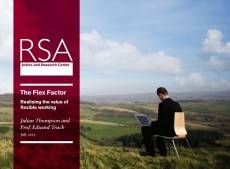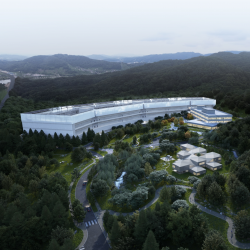April 3, 2014
Benefits of mobile broadband to Australia run to tens of billions, claims report
 While the UK Government continues to fuss over the rollout of broadband in the UK, bickering with the notoriously ponderous BT about a dysfunctional monopoly they created themselves, a new report from Australia claims that the economic benefits of mobile broadband in that country came to nearly AU$34 billion (£19 billion) last year. The report commissioned by the Australian Communications and Media Authority (ACMA) in partnership with the Centre for International Economics (CIE) and Analysys Mason found that although the mobile telecoms sector only accounts for 0.5 percent of economic activity in Australia, its impact on productivity is profound. Last year it accounted for an additional AU$33.8 billion in activity, 2.28 percent of Australia’s total gross domestic product. The report makes its claim on the basis that between 2006 and 2013, productivity growth was 11.3 percent per year, but would have been only 6.7 percent without mobile broadband.
While the UK Government continues to fuss over the rollout of broadband in the UK, bickering with the notoriously ponderous BT about a dysfunctional monopoly they created themselves, a new report from Australia claims that the economic benefits of mobile broadband in that country came to nearly AU$34 billion (£19 billion) last year. The report commissioned by the Australian Communications and Media Authority (ACMA) in partnership with the Centre for International Economics (CIE) and Analysys Mason found that although the mobile telecoms sector only accounts for 0.5 percent of economic activity in Australia, its impact on productivity is profound. Last year it accounted for an additional AU$33.8 billion in activity, 2.28 percent of Australia’s total gross domestic product. The report makes its claim on the basis that between 2006 and 2013, productivity growth was 11.3 percent per year, but would have been only 6.7 percent without mobile broadband.



























May 9, 2014
Flexible working benefits are undermined by short sighted employers
by Pam Loch • Comment, Flexible working, Legal news, Workplace
There has been a growing perception that flexible working practices are now commonplace in the workplace. However a recent report from Working Families, a charity set up to help working parents and carers find a balance between their responsibilities at work and at home, suggests this is a myth. Their report reflects growing concerns based on experiences and queries from their helpline that employers are in fact, becoming more rigid. The report suggests that working parents are coming under increasing pressure to give up their flexible working arrangements. It highlights “a growing number of callers to the helpline reporting the family-friendly working pattern they have had in place for years being changed or withdrawn virtually overnight, with no opportunity for them to express their views”. Ironically, despite the Government’s championing of flexible working it seems the imposition of employment tribunal claim fees could be behind the backlash. (more…)